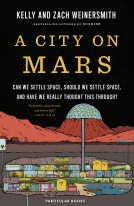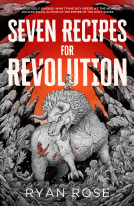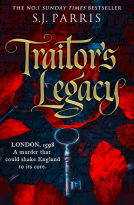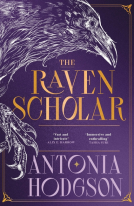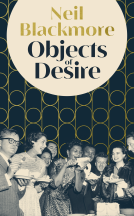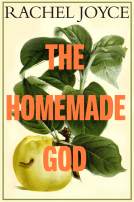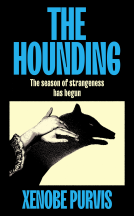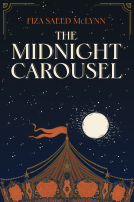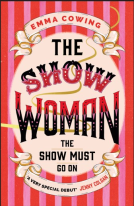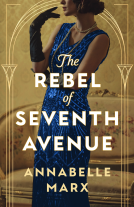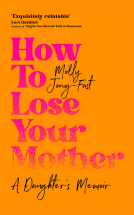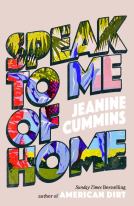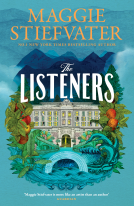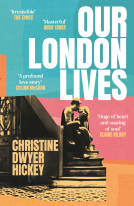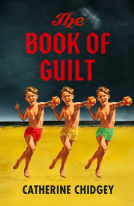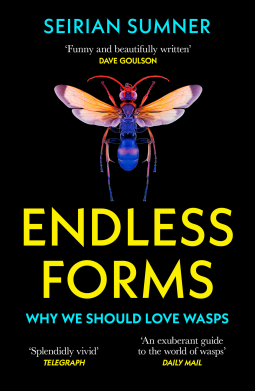
Endless Forms
Why We Should Love Wasps
by Seirian Sumner
This title was previously available on NetGalley and is now archived.
Send NetGalley books directly to your Kindle or Kindle app
1
To read on a Kindle or Kindle app, please add kindle@netgalley.com as an approved email address to receive files in your Amazon account. Click here for step-by-step instructions.
2
Also find your Kindle email address within your Amazon account, and enter it here.
Pub Date 26 May 2022 | Archive Date 1 Nov 2023
4th Estate and William Collins | William Collins
Description
‘A funny and beautifully written welcome to the enigmatic, weird and wonderful world of wasps’ DAVE GOULSON, author of SILENT EARTH
There may be no insect with a worse reputation than the wasp, and none guarding so many undiscovered wonders.
Where bees and ants have long been the darlings of the insect world, wasps are much older, cleverer and more diverse. They are the bee’s evolutionary ancestors – flying 100 million years earlier – and today they are just as essential for the survival of our environment. A bee, ecologist Professor Seirian Sumner argues, is just a wasp that has forgotten how to hunt.
For readers of Entangled Life, Other Minds and The Gospel of Eels, this is a book to upturn your expectations about one overlooked animal and the wider architecture of our natural world.
With endless surprises, this book might teach you about the wasps that spend their entire lives sealed inside a fig, about stinging wasps, about parasitic wasps, about wasps that turn cockroaches into living zombies, about how wasps taught us to make paper.
It offers up a maligned insect in all its diverse, unexpected splendour; as both predator and pollinator, the wasp is an essential pest controller worldwide. Inside their sophisticated social worlds is the best model we have for the earth’s major evolutionary transitions. In their understudied biology are clues to progressing medicine, including a possible cure for cancer.
The closer you look at these spurned, winged insects – both custodians and bouncers of our planet – the more you see. Their secrets have so far gone mostly untapped, but the potential of the wasp is endless.
Available Editions
| EDITION | Ebook |
| ISBN | 9780008394493 |
| PRICE | £3.99 (GBP) |
| PAGES | 304 |
Available on NetGalley
Featured Reviews
 Abby S, Reviewer
Abby S, Reviewer
Had no idea abook about Wasps could be so entertaining even humorous.The author has so much enthusiasm for Wasps I was drawn in and learned so much.#netgalley #4thestate
 Catalina S, Librarian
Catalina S, Librarian
The endless fascinating natural world, constantly teaching us new things and helping us in our progress, when is not trying to kill us, that is lol.
I am very much with Seirian Sumner. All creatures are important and have their role in a healthy ecosystem. Wasps and butterflies and flies and all other pollinators as just as important as bees. I hate the craze with bees that is nothing else than a marketing ploy at the expenses of all the other animals that are ignore and hated for no good reason. But at the same time, how many times can one read how hated wasps are without wanting to rip the book apart??? Endless Form hasn't been an easy read for me. The start was all over the place, my impression being that Sumner is so knowledgeable and so excited to share with us the charming and endlessly fascinating world of wasps that she ended up sharing too much, too soon. Endless Latin and scientific notations that a novice like myself felt overwhelmed. But perseverance does pay off, and the more I've read, the more I've enjoyed the information contained in the pages of the book and especially the wasps' world that was being built before my eyes.
Written with humour and intelligence, I have found a new appreciation for wasps! Some of the history of their study was a little dull but I liked learning about this misunderstood insect and the authors enthusiasm for them is infectious!
The wonderful and amazing world of wasps
As a gardener I value wasps, and other predatory insects, for the help they give me in keeping insects that would damage my plants in check. But I hadn’t appreciated that wasps have been on earth for such a long time, that they came first, and that ants and bees evolved from them, why and how they build hexagonal cells to raise their young, that they’re material scientists that choose the materials they use to build their nests depending on what they’re building, the vast number of species and forms that exist and so much more.
Seirian’s style is very engaging. Her love and enthusiasm pour off the page, she draws you into her fascination with wasps and I found this a really interesting read. The only aspect I wasn’t sure about was the imaginary conversation with Aristotle but it was an interesting device and allowed Seirian to discuss his work on bees and show how many of his discoveries stand after 2,000 years and are being scientifically validated.
All in all the book was an affirmation for me that wasps are truly fascinating and brilliantly evolved creatures that deserve to be better appreciated and understood.
I was given this book from the author via netgalley only for the pleasure of reading and leaving an honest review should I choose to.
 Jen B, Reviewer
Jen B, Reviewer
If, like most people, you have a fear or dislike of wasps then this book is for you. Wasps are as important as bees and butterflies to our planet yet are wildly misunderstood. Endless Forms gives clear insight into these brilliant insects that will dissolve prejudices as you read along. Perfect for fans of Entangled Life.
There is a vibe you get from almost page one of Endless Forms where Dr Seirian Sumner professes her adoration for wasps that you know she gets "that look" a lot. She says as much, throughout the book - and she says she doesn't mind, and is used to it, but you know that at one point she just steered into being thought of as weird and stopped caring. That life journey is replicated in the book - as she flirts with being a bit weird (mainly loving wasps) and then goes completely crazy in Part Five (of Seven), but the point is that this is an expert telling you about the think that she loves with passion, interest and not a little bit of weirdness in the process.
The other thing to note is that - like much of society - its not good enough to express the thing you love, you also have to hate something else. So if Wasps are her Radiohead, Bees are her Coldplay. She hates bees, she calls the lazy wasps that forgot how to hunt and willing to sell themselves into honey slavery for being a bit cute. And this is borderline hilarious in the book as when we get another thrilling anecdote about the wonderful variation and adaptability of wasps we will almost certain get a bee burn too. And the book convinced me to look at Wasp differently, that they pollinate, that they keep down pests, that some make nests which are much more interesting than stupid honey filled hexagons. And whilst as a mathematician I do have a slight problem with the term "Endless" - she certainly convinces that their variety is remarkable.
And then we get to Part Five: "Dinner With Aristole". One of her many early positive references for wasps is Aristoles' early studies into wasps (basically if Aristole are into wasps YOU SHOULD BE TOO). But the book has coasted on low level oddness between the fascinating discussion of wasps up until this point, but Part Five Dr Sumner invites - via the medium of imagination - Aristole to a dinner party. This is a clever way to discuss what antiquity thought about wasps and what we know now, and is a lovely little device if - hold on, she's calling him Aris, saying he's a dapper dresser and explaining that as a progressive philosopher he would happily break his societies taboos on dining with women. By the end of the chapter she's had a minor argument, made up, flirted endlessly (via the medium of wasps), and even allowed him to talk about bees for a bit because she is starstruck. It is a bonkers chapter, and absolutely makes the book more than just a well researched text on our current understanding of wasps. She makes the case eloquently that you don't have to be mad to love wasps, but its helped her a little. A must read.
Horrific, fascinating, witty……………….and finally, persuasive
Oh this is the most wonderfully gripping book, start to finish, written by a scientist who clearly has a strange (to most of us, probably) enduring devotion and or obsession with…wasps.
I eagerly requested this book from the publisher, via NetGalley, even though I was pretty sure I would feel terrified by the vividness of my imagination, and I would be fighting off nightmares for some time.
I adore books about matters scientific, especially about the natural world, but always need the assurance that the author is a fabulous writer and communicator as well as a sharply incisive scientific thinker
It was clear from page 1 that Sumner was absolutely going to deliver everything I could want
However, she stated from the off, that her goal was to make us, if not LOVE vespines as much as she does, at least to value and admire them. For most of the book, I was saying ‘no way, sister, with THAT one’ – value and admire.
And that’s because she started with the horror stuff. Quite rightly, I think, got this unforgettable account of the parasitoids, the stuff, since childhood, of my nightmares, out of the way.
Wasps tend to be carnivores, one reason we might not adore them as we do the lovable social vegetarians – or nectarians, pollenarians, the bees. Fair nuff, but many wasps go well beyond the chumping of grubs, other wriggly things, arachnoids, other hymenopterans and the like. If the chomping on a beetle, caterpillar or spider doesn’t make you feel a bit icky – try this : parasitoid wasps have various means to insert or attach their eggs to the menu, turning another creature into slow living lunch for their own grubs. Or, as Sumner most cleverly calls them ‘their babies’ She really is a fine manipulator or her reader!
Some parasite wasps anaesthetise and poison their much larger prey, so they can drag them to the cocoons they make for a single egg, to give the baby – see, she’s got me at it – enough living lunch to munch till the larva can emerge to start the cycle again. And then there are parasitoid wasps whose ‘prey’ are other species of parasitoids. I was whimpering unhappily at this whole section.
Fascinated, horrified, but I was NEVER going to value and admire wasp waisted vespines, unlike the cuddly bumble, or the funny hunny bee!
But cleverly, wittily, and often, with wonderful playful imagination Sumner was spinning me under her spell….there’s a wonderful section where she imagines a dinner party with Aristotle – he wrote a treatise on bees. The two trade philosophy and science on their respective favourite hymenoptera. And if the long dead Aristotle ends up charmed and excited by the intelligence, adaptability, artistry and, yes USEFULNESS of the many many varieties of wasp (endless forms) who am I to dare to resist.
So, in her final section, she outlines the wonderful ecological, environmental services wasps perform, as scavengers, pest controllers, maintaining crops WE find valuable by chomping on their predators, also, along with their well loved bee relatives, as major pollinators – wasps, as we know too well, also are attracted to the sweet smell of nectar – or the sugar in our summer picnic foods.
I did end up absolutely marvelling and in awe. The wasp of course could be said to be the ‘mother’ of the other major variations of social insect – ants are wasps which lost their wings, bees are wasps which ‘decided’ – oh lovely, kindly, bee, to become vegetarian. Well, vegan! But… to confuse things, there are also wasps which have abandoned carnivore diets
This is a fabulous book, and I hope I can let go of ‘imagining’ the awfulness of being a living caterpillar being munched by a group of baby wasps sometime soon!
This is a very readable book, stuffed with fascinating information about a much maligned insect. Maligned beyond all justification based on the striped "attacker", the wasp of picnics! I have been amazed to discover just how many varieties of wasp there are, 100,000+, and the fact wasps which we "hate" have been around for so much longer than bees, which we have been taught to love. I was also surprised to discover that ants are members of the wasp "family". The surprises continue as one gets further into the text, not quite one on each page but, hey, who's counting?
I would have loved to have been able to read this book straight through from cover to cover but found too much detail for me to absorb that way and so have read it in sections. Having finished Endless Forms, I am truly astounded by the way that Nature, when largely left to its own devices, continues to confound us by the cleverness of its evolution.
So happy to have discovered Endless Forms and I believe you will be too.
 Librarian 250745
Librarian 250745
Exactly my kind of book. Told with boundless enthusiasm and clear breadth and depth of knowledge, this book reboots the reputation of that much maligned insect – the wasp. This was fascinating and engaging, provoking thought of the interconnectedness of our eco system and how we ought to pay attention to all parts of it, including those creatures with a tendency to ruin a picnic. Highly recommend.
Wasps get a bad rap. Often considered a nuisance, the sight of a wasp nearby frequently sends people into a panic. Entomologist Seirian Sumner is an expert in social wasps. In Endless Forms, she makes it her mission to turn the public's aversion for wasps into awe.
The author's enthusiasm is infectious, her writing accessible, and the wealth of fascinating information on the evolution, variety and benefits of wasps is sure to make a convert out of many a reader.
With thanks to NetGalley and 4th Estate and William Collins for the ARC.
